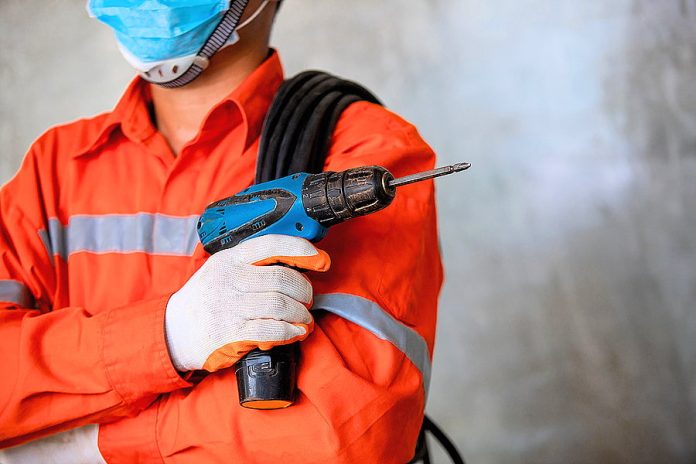With the entire construction industry shut down across NSW and the NSW Government continuing to refuse to give a specific definition of what constitutes an essential worker, it’s worth considering the definitions we have more closely, even as case numbers continue to rise.
The NSW Government has encouraged management and workers to use their common sense when it comes to who is and isn’t an essential worker – it’s fair to say security operators are essential workers, security technicians undertake maintenance of security. fire and life safety systems are essential workers, security officers protecting key assets and operations are essential workers.
Any worker providing services for a range of public administration and safety functions is considered an essential worker – in many situations, this may include security technicians working on maintaining, repairing or enhancing the functionality of key life safety systems, as well as protecting the buildings that house other essential workers.
Essential workers include NSW Police Force, Fire and Rescue NSW, the NSW State Emergency Service, the NSW Rural Fire Service or the Ambulance Service of NSW or other emergency services worker, including fire protection and safety personnel. Also included are works in the administration of justice, including in relation to the operation of courts and tribunals, correctional centres and community corrections, or persons working for defence, national security and other branches of law enforcement.
Security teams implementing COVID-19 procedures – for instance, in the lobbies of hospitals and vaccination centres – this includes the technicians providing key services in support of such operations. A person working in health services, or working for health services, a person providing support services at hospitals, including security providers, a person engaged at a residential aged care facility is an essential worker. Anyone working in biosecurity and food safety undertaking critical duties is also essential.
Other essential work includes production and manufacturing of food, beverages, groceries, cleaning and sanitary products food and fibre processing and manufacturing, manufacture of food and beverage packaging, manufacturing of medical equipment, consumables and personal protective equipment, manufacturing of telecommunications equipment and infrastructure, as well as providing support services to these verticals.
Transport, postal and warehousing, seaport and airport operations, freight, logistics, postal, courier or delivery services including food logistics, delivery and grocery fulfilment, export supply chain operators, distribution of food, groceries and sanitary products for sale by supermarkets, grocery shops or other shops that predominantly sell food or drinks, warehousing, road transport (passenger and freight), rail transport (passenger and freight) – including rail yards, water transport (passenger and freight), air transport (passenger and freight), pipeline and other transport, transport support services and critical safety operational staff for transport are included.
Other essential services cover electrical services, energy system operation, fuel services, water services and waste services, as well as telecommunications, ISPs, data processing, IT specialists and technicians, data storage and public communications services. Also essential are services required for the maintenance, safety and upkeep of public and recreational spaces.
While the list is not exhaustive and the NSW Government’s position remains opaque, it suggests security technicians working to maintain, service and enhance key building and life safety systems are able to work on site during lockdown using proper COVID-safety procedures – with the caveat that the pause in construction and renovation means some work sites have been closed until further notice.
#sen.news









